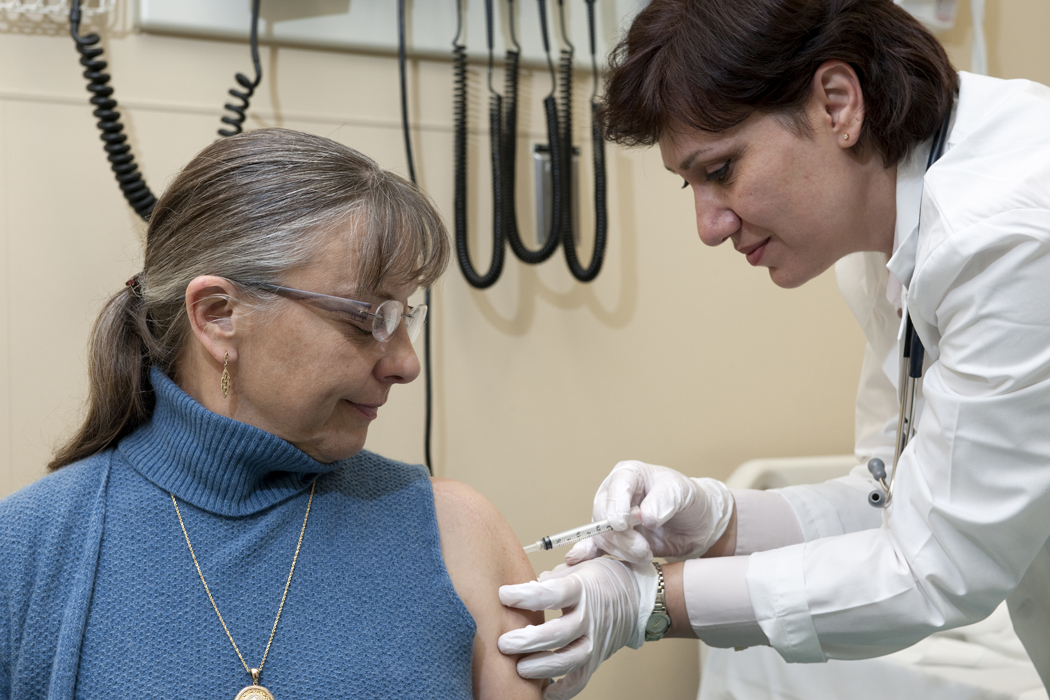
Project STRIVE battles influenza through data, surveillance and networking
A Winnipeg-based project that grew from modest beginnings is in its third season and continues to expand its recruitment efforts of sentinel networks; the 2013-2014 season marks the first time northern nursing stations have been included.
The Surveillance Team Research on Influenza Vaccine Effectiveness (STRIVE) was launched in 2011. The U of M collaborative team, which also includes Manitoba Health and the WRHA’s Population and Public Health Program, joined a national multi-site vaccine effectiveness surveillance network already in operation in Alberta, British Columbia, Ontario and Quebec.
In its pilot year, STRIVE aimed: to assess the feasibility of implementing a sentinel network of primary care clinicians to assess the effectiveness of the flu vaccine in protecting against influenza; to monitor levels of influenza activity and changes in circulating strains and patterns of antiviral resistance; and to assess the distribution of respiratory viruses contributing to influenza-like illness.
Its overarching goal is to establish a network that will test 400 Manitobans each flu season to contribute to strengthening influenza control efforts through improved vaccine strain selection, better understanding of the frequency and causes of vaccine failure, earlier detection of changed and novel strains and enhanced capacity for surveillance and pandemic preparedness.
The success of the pilot year helped launch the network and expand its membership from northern and rural Manitoba in the following (2012-2013) season, with wider participation from clinicians including nurse practitioners, physician assistants and charge nurses joining family and ER physicians.
STRIVE has already had a significant impact; estimates of vaccine effectiveness during the 2012-2013 influenza season were made available to decision-makers and clinicians early on in the seasons allowing for fine-tuning of vaccine strategy, messaging and clinical guidelines. When published these results were widely cited by both scientific and lay media.
The data was presented at several international conferences and was used by the WHO Global Influenza Vaccine Effectiveness program to determine influenza vaccine composition for the coming season.
STRIVE is led by Faculty of Medicine researchers Salah Mahmud, community health sciences (PI), and Paul Van Caeseele, medical microbiology and pediatrics & child health (co-PI), and has received funding from the Canadian Institutes of Health Research, the Public Health Agency of Canada and Manitoba Health.
Research at the University of Manitoba is partially supported by funding from the Government of Canada Research Support Fund.






